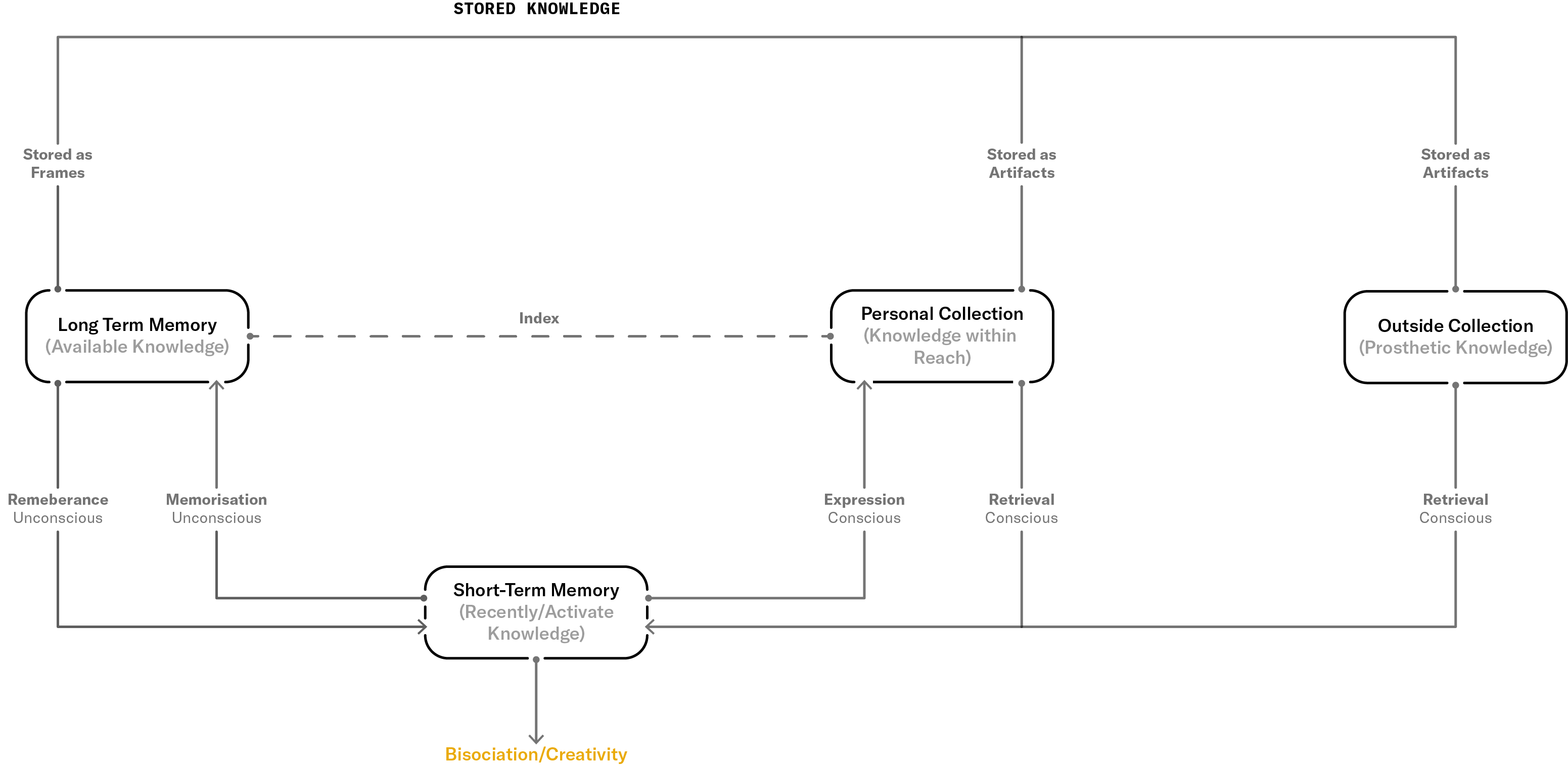An Availability-Based Classification of Knowledge
We created a classification of knowledge based on its availability (rather than based on its qualities like tacit knowledge and process knowledge), putting the focus on knowledge that is »stored« for later use.

Recently Activated Knowledge: Short-Term Memory
The knowledge that is used while thinking and that is available for the bisociation process has to be stored in the short-term memory. We call this knowledge »Recently Activated Knowledge«.
Available Knowledge: Long-Term Memory
The knowledge that is stored in the long-term memory is called »Available Knowledge«. It can be transferred to the short-term memory by means of remembrance. Vice versa Recently Activated Knowledge can be turned into Available Knowledge by means of memorization. It is important that both the processes of remembrance and memorization are happening unconsciously, but can be fostered for example by using certain techniques that enhance the chance of knowledge being remembered.
Knowledge Within Reach: Information Collection System
Knowledge that is saved to the personal collection by expressing it from the short-term memory, turning it into information and saving this information in a collection (or saving an expression of the knowledge that someone else created) is called »Knowledge Within Reach«. This knowledge can be retrieved by looking at the information that it is represented by and understanding it. How much can be retrieved depends greatly on the quality of the saved information. Both the transfer from and to the short-term memory require actions that are executed consciously.
Index
The knowledge stored in the collection does not need to be stored in the long-term memory, thereby freeing it up for other knowledge. The mind only needs to know that this knowledge is saved as information, creating a kind of mental index of the collection. With this index one can remember that this knowledge exists within reach and can be retrieved if needed.
Prosthetic Knowledge
There is also a last kind of knowledge: knowledge that one does not explicitly know exists, but that can accessed, should it be searched for. A term used for this kind of knowledge is »Prosthetic Knowledge«. An example might be the knowledge stored in books in a library: The content of each book is unknown, but the knowledge can be gained, should one look for it. Probably the most important collection of Prosthetic Knowledge is the internet. It is a vast collection of human knowledge, all available at one’s fingertips by means of looking if it exists.